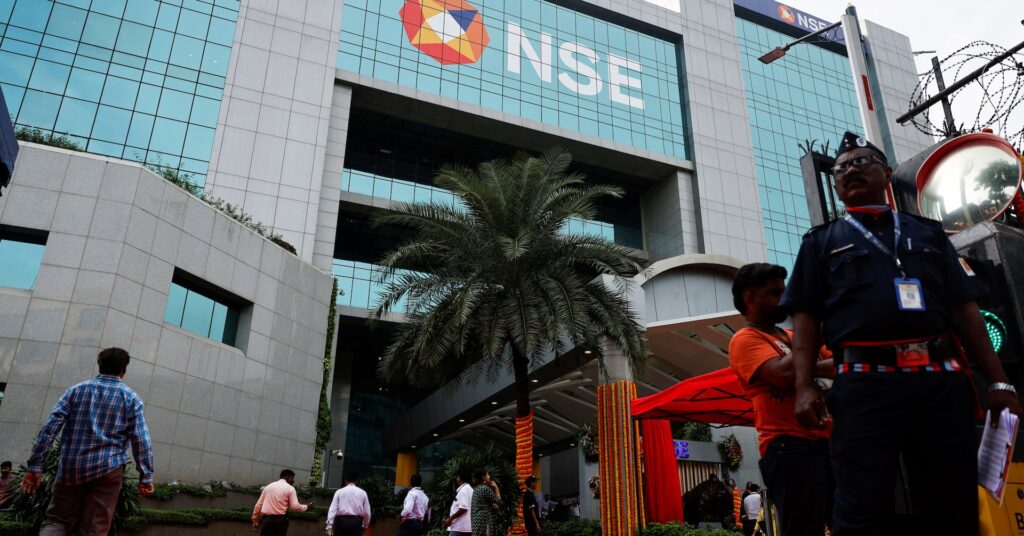India’s National Stock Exchange (NSE) — the heartbeat of the country’s financial markets — faces a staggering 170 million cyberattacks every single day, or nearly 2,000 strikes every second. From phishing attempts and data breaches to large-scale Distributed Denial of Service (DDoS) attacks, the threats are constant, evolving, and borderless.
To counter this invisible but unending digital war, the NSE has established AI-driven defense systems, real-time monitoring centers, and a specialized team of cybersecurity professionals, known internally as “cyber warriors,” who protect the exchange 24×7.
Operation Sindoor: When 400 Million Attacks Hit in a Day
In a massive cybersecurity drill named “Operation Sindoor”, the NSE simulated a large-scale DDoS attack to test system resilience. Within just 24 hours, the systems faced an unprecedented 400 million cyberattack attempts, the highest in its operational history.
Despite the onslaught, trading continued without a single second of disruption. Officials credited this to the exchange’s layered security architecture, rapid-response automation, and continuous coordination between human analysts and machine intelligence.
“Every day, millions of digital strikes target the NSE. But our systems neutralize them automatically,” said a senior NSE cybersecurity official. “For us, it’s not a one-time fight — it’s a continuous digital battlefield.”
24×7 Cyber Defense Centers in Constant Battle Mode
The NSE runs two dedicated Cyber Defense Centers operating round the clock. These centers employ real-time analytics, AI-based anomaly detection, and automated blocking mechanisms capable of identifying and neutralizing threats within milliseconds.
Officials emphasize that perfect human-machine coordination has been key to keeping the market secure. “Our team functions like an air traffic control tower for cybersecurity,” an insider noted. “Every potential threat is tracked, verified, and defused before it reaches core systems.”
Strengthening the Human Firewall
Recognizing that human error is often the weakest link in cybersecurity, NSE has made cyber awareness training mandatory for all employees and trading members. Through the NSE Academy, the exchange runs training modules on data protection, cyber hygiene, and risk response.
Regular Vulnerability Assessment and Penetration Testing (VAPT) are also required for all connected systems, ensuring early detection of weak points. Internal tools automatically restrict access to suspicious emails, external drives, or unknown web connections — cutting off threats before they spread.

Prepared for Digital Siege
DDoS attacks remain the most common and dangerous threat to high-frequency financial systems. By flooding servers with fake traffic from thousands of sources, attackers aim to paralyze networks.
However, the NSE’s multi-layered defense architecture can detect, isolate, and reroute malicious traffic at lightning speed, ensuring zero downtime for investors and traders.
During Operation Sindoor, NSE briefly restricted foreign web access as a precautionary measure — a decision officials said was necessary to “ensure market continuity and investor trust.”
Self-Reliant, Redundant Infrastructure
To prevent disruption under any circumstances, the NSE’s Mumbai-based operations are mirrored by a fully automated disaster recovery system in Chennai.
In case of any outage, the backup system can take over instantly after digital verification, ensuring seamless market functioning.
“Our goal is to ensure that no cyber event, no matter how severe, can halt the heartbeat of India’s financial market,” said an NSE spokesperson.
Global Cyber Threat Landscape
NSE officials also warned that the interconnected nature of global finance makes cybersecurity not just a national concern but an international priority.
“If any major financial market is breached,” an official explained, “the shockwaves would ripple through the entire ecosystem, from investors to government systems.”
The New Age of Digital Defense
The NSE’s cybersecurity infrastructure represents India’s frontline defense against financial cyber warfare.
As digital transactions grow and markets become more integrated, its vigilance symbolizes a broader national mission — the protection of India’s economic sovereignty in cyberspace.
“Security today isn’t a wall,” an NSE expert concluded. “It’s a living, adaptive shield powered by vigilance, technology, and human intelligence.”


